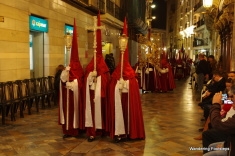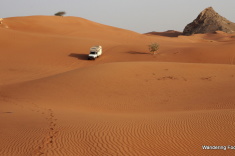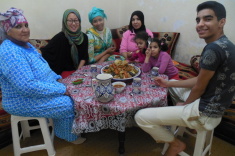Nairobi. The name conjures up a variety of images, most of them negative.
The 2012 Westgate Mall shooting. The 1998 US embassy bombing. The 2007 post-election riots.
Crime. Violence. Unsafe. Dirty. Chaotic. Slums.
“Nairobbery”, some people call it.
What all of these images obscure is the fact that Nairobi is just like any other capital city in Africa – no better, but really no worse either. The fact that you’re advised to take a cab after nightfall is good advice in any capital, and avoiding walking down deserted roads and leaving valuables at home are pieces of sound advice that any traveler should obey.
With that perspective in mind, Bruno and I spent 10 relaxing and luxurious days in the Nairobi area.
Nairobi, though, has few things to offer the tourist. Besides the National Museum (in the center of the Central Business District) and the Nairobi National Park (unaffordable), Nairobi’s charm (for the civilization-starved traveler) lies in its massive grocery stores offering everything the heart could desire, its cafes, serving mouth-watering food and perfect in-house-made bread, and its cinemas (!!). And that, for the most part, is what Bruno and I did – eat out, get groceries, go to the movies (with popcorn, obviously!).
We also spent a lovely evening with my friend, Jo. For my faithful blog readers, you might remember that I spent 4 nights with Jo in Paris, where, in addition to being an excellent host, he served me up a 5-course “crumble” meal, when all I asked for was an apple crumble! Jo, ever the expat, now lives in Nairobi, and I wanted to introduce Bruno to a fellow countryman. We had a drink at his nice flat before going out for some delicious Ethiopian food, eaten just the way I like it (from a communal dish, with your right hand!). We also spent the night in Jo’s guest room. Thanks, Jo! See you in July!
.jpg) |
| a photo of Karen Blixen’s house (not mine – we didn’t really take any photos in Nairobi, as we didn’t want to wander around with our camera) |
But for me, the best part of Nairobi was staying in the suburb of Karen, while simultaneously reading the book, “Out of Africa”. I knew nothing of the story or of Karen Blixen, but I have quickly become an expert, having also read a series of her essays, seen the film, and visited her colonial home (well, just the outside, as the entry into the “museum” was ridiculously expensive). A place truly comes alive when one knows its past, and I spent 6 days imagining what life had been like here 100 years ago.
Admittedly, it was difficult to imagine. The neighborhood is now full of new, colossal homes, signboards on every corner advertising various goods and services, no less than 3 enormous shopping centers, and a few large roads cutting through everything. It was certainly not reminiscent of the Ngong Hills that Blixen described with such melancholy in her book. She must be turning in her grave to see it now, though she must have known that it was to become like this, for when she was forced to sell her farm, she sold it not to a farmer, but a company that was to divide the land into residential plots for ever-expanding Nairobi.
I can’t decide if I like Karen Blixen or not. On the one hand, the movie portrays her as a fierce, odd, out-of-the-ordinary colonial woman. One point. On the other, she was prissy and had snobby, expensive taste, as per the norm. Minus one point. On one hand, she had a very clear infatuation for “the Natives”, and had special relationships with most of her servants. She set up a school for the farm kids, cured her Natives of various ailments (and took them to hospital when she couldn’t), searched for a big piece of land for her Kikuyu settlers in order to secure their future before her departure, and kept in touch with several of her servants for the rest of her life. Ok, two points for that. On the other hand, she was a passionate hunter (as per the norm at that époque), shooting “at least one of everything” during her first years, and later, when she’d seen the error of her thinking, still couldn’t help herself from shooting lions, and passionately extolled the virtues of such a hunt. Minus at least 2 point for that.
In any case, “Out of Africa” was well-written, and Karen Blixen managed to capture my interest even when writing about trivial stories. More than that, she captured a moment in Nairobi’s – and indeed, Kenya’s – history and perceptively painted an image of colonialists, colonial mentality, and colonial Africa.
Our time in Nairobi was restful. This is contrary to what one would expect from Nairobi, and what one would expect from Bruno (who admonishes large cities, and finds his greatest rest in the bush). Our rest was due to our campsite, Karen Camp. The first few days we spent at Upper Hill Campsite, due to its proximity to town, and therefore to the “civilized” conveniences we were looking for. After a few nights of sleeping in their parking lot next to a gigantic pink bus, we opted to move out to the far-away suburbs, and that is when the rest began. Karen Camp offered us space, quiet, electricity, free wifi (allowing us to skype with our families!), and reliably hot showers. These are all the ingredients for an excellent campsite! Even though it wasn’t much to look at, and it surely wasn’t fancy, we found our rest here and are now ready to hit the road! Next stop, the coast!



Henry Thomas - Great post! Thanks for keeping us updated as I give you update about travel
henry thomas